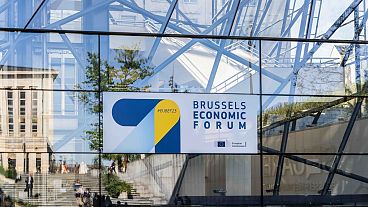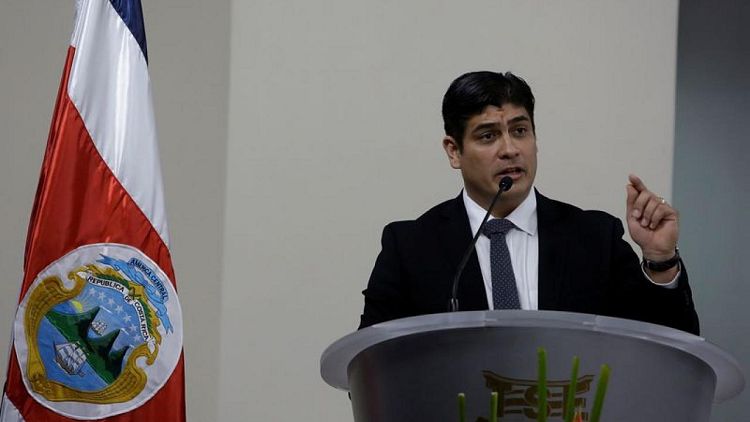By Alvaro Murillo
SAN JOSE - Costa Ricans will head to the polls on Sunday for a general elections likely to trigger a second-round vote in early April, with none of the 25 presidential candidates expected to win more than the 40% of the votes needed to avoid a runoff, according to a study.
The wide field, including a former president and an evangelical preacher, is vying to replace progressive President Carlos Alvarado in an election that will change the make up of the 57-member Congress dominated by the National Liberation Party (PLN), born on the center-left in the middle of the 20th century.
The vote comes amidst a new wave of the coronavirus pandemic and high unemployment among the 5 million people in the Central American nation long praised for its democratic stability in a volatile region.
None of the 25 presidential candidates - the largest number in the country's history - are expected to win more than 17% of the vote, according to a survey published on Tuesday by the Center for Research and Political Studies (CIEP) of the University of Costa Rica (UCR).
The study also found that over 31% of voters were undecided less than a week before the elections.
The poll shows PLN candidate and former President Jose Maria Figueres, who led the country in the 1990s, ahead of the pack with 17%, followed by former Conservative Vice President Lineth Saborío with 12.9%, and evangelical preacher Fabricio Alvarado on 10.3%.
The Eurasia Group, a consulting firm, predicted that Saborío would be a strong candidate in the second round, while Figueres might be disadvantaged by his party's alleged ties to corruption.
Five mayors from Figueres' PLN party have been accused of collaborating with drug trafficking groups.
'A FEW' DOING WELL
The elections come as Costa Rica reports record number of COVID-19 cases, which is expected to drive low voter turnout.
Unemployment and corruption are top concerns for Costa Ricans, according to surveys. The unemployment of 14.4% is the highest in a decade, except for 2020 when the economy was crippled by pandemic-related lockdown measures.
Voters largely blame the problems on the outgoing president and the two traditional parties, PLN and Christian Social Unit Party (PUSC).
"A few people are doing very well, but the majority are not," said Hubert Picado, 46, who works as a fruit grower in the northeastern municipality of Pococi.
"I don't know if it's better to vote for the old parties or the new ones," he added.
The outcome of Sunday's vote for 57 legislators of the country's unicameral assembly is also uncertain, with all the seats contested.
Legislation is pending to approve measures to comply with the terms of Costa Rica's agreement with the International Monetary Fund (IMF), a deal promoted by Alvarado, whose four-year term ends in May. Several presidential candidates have proposed renegotiating the deal.
The IMF agreement would provide Costa Rica with $1.8 billion over three years. Costa Rica ended 2021 with a fiscal deficit at 5.16% of GDP and an economic growth of 7.6% after the contraction of 4.5% in 2020 due to the effects of the pandemic.


